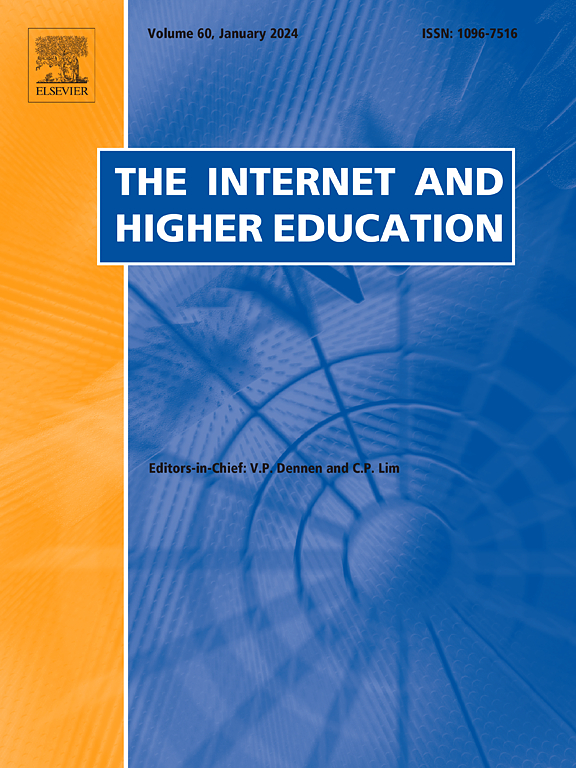Empowering international PhD students: Generative AI, Ubuntu, and the decolonisation of academic communication
IF 6.8
1区 教育学
Q1 EDUCATION & EDUCATIONAL RESEARCH
引用次数: 0
Abstract
Generative AI (GenAI) provides distinct affordances that contribute meaningfully to learning. However, there are also several challenges, most notably ethical considerations. While much of the current research on GenAI in academia focuses on technical capabilities or ethical concerns, few studies have examined how GenAI can be leveraged to promote equity and inclusivity, particularly in academic communication. In this study, we adopt the theoretical lens of Ubuntu, a Southern African philosophy that emphasises interconnectedness and community, to reconceptualise GenAI as a democratising force. Five international PhD students in Education and their PhD supervisor (all multilingual users of English) explored their experiences of using GenAI. We used a collaborative autoethnographic approach, incorporating reflective prompting, individual writing, group sharing and refining, and group-based writing. We demonstrate that GenAI reshaped power dynamics and challenged academic hierarchies by providing real-time language support and improving academic writing clarity. This empowered us to participate in academic discourse, disrupting traditional gatekeeping mechanisms. By automating routine tasks, GenAI also shifted our academic focus from technical skills to intellectual contributions, fostering inclusivity and equity. This study highlights the potential of GenAI in terms of knowledge creation and academic discourse, particularly for doctoral scholars navigating linguistic and cultural barriers. Academia is predominantly Anglophone-centric, marginalising non-English-speaking scholars by imposing additional barriers to participation and recognition, perpetuating inequities in knowledge creation and dissemination. We argue that embracing GenAI can help to decolonise these academic practices, thereby promoting epistemic justice and creating a more equitable scholarly environment for all.
授权国际博士生:生成人工智能,Ubuntu和学术交流的非殖民化
生成式人工智能(GenAI)提供了对学习有意义的独特启示。然而,也有一些挑战,最明显的是道德方面的考虑。虽然目前学术界对基因人工智能的研究大多集中在技术能力或伦理问题上,但很少有研究探讨如何利用基因人工智能促进公平和包容性,特别是在学术交流中。在这项研究中,我们采用了乌班图的理论视角,这是一种强调相互联系和社区的南部非洲哲学,将GenAI重新定义为一种民主化力量。5名来自教育部的国际博士生和他们的博士生导师(都是多语种的英语使用者)探讨了他们使用GenAI的经验。我们采用了一种协作式的自我民族志方法,结合了反思提示、个人写作、群体分享和提炼以及基于群体的写作。我们证明,GenAI通过提供实时语言支持和提高学术写作清晰度,重塑了权力动态,挑战了学术等级。这使我们能够参与学术讨论,打破传统的把关机制。通过自动化日常任务,GenAI还将我们的学术重点从技术技能转移到智力贡献上,促进了包容性和公平性。这项研究强调了GenAI在知识创造和学术话语方面的潜力,特别是对于克服语言和文化障碍的博士学者。学术界主要以英语为中心,通过对参与和认可施加额外的障碍,使非英语学者边缘化,使知识创造和传播方面的不平等永续存在。我们认为,接受GenAI可以帮助这些学术实践去殖民化,从而促进认知正义,并为所有人创造一个更公平的学术环境。
本文章由计算机程序翻译,如有差异,请以英文原文为准。
求助全文
约1分钟内获得全文
求助全文
来源期刊

Internet and Higher Education
EDUCATION & EDUCATIONAL RESEARCH-
CiteScore
19.30
自引率
4.70%
发文量
30
审稿时长
40 days
期刊介绍:
The Internet and Higher Education is a quarterly peer-reviewed journal focused on contemporary issues and future trends in online learning, teaching, and administration within post-secondary education. It welcomes contributions from diverse academic disciplines worldwide and provides a platform for theory papers, research studies, critical essays, editorials, reviews, case studies, and social commentary.
 求助内容:
求助内容: 应助结果提醒方式:
应助结果提醒方式:


